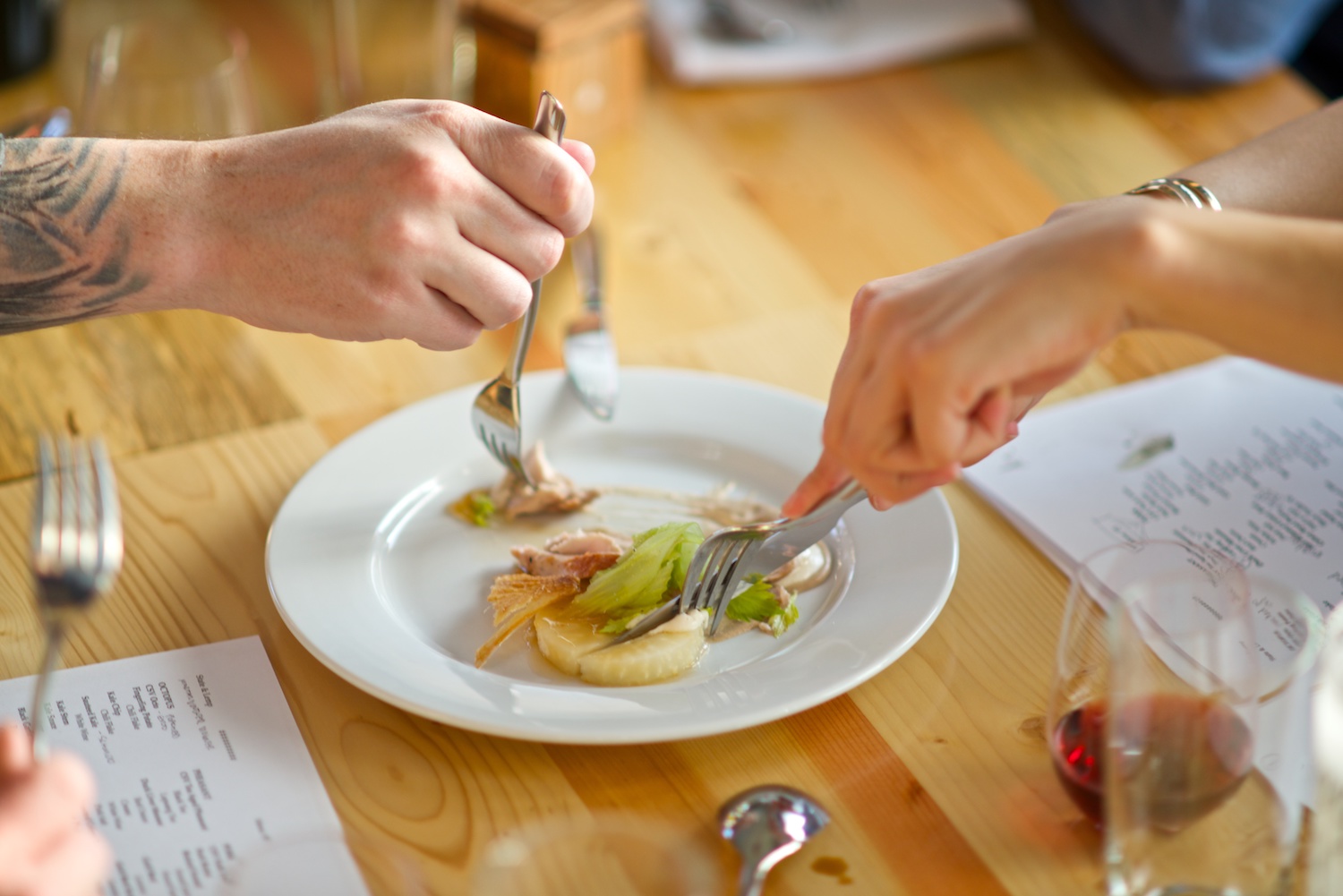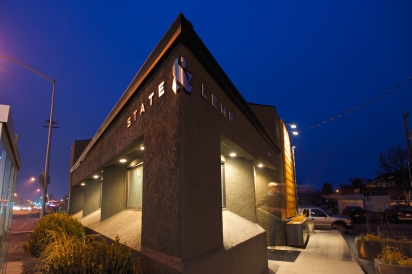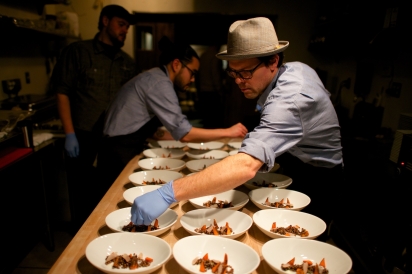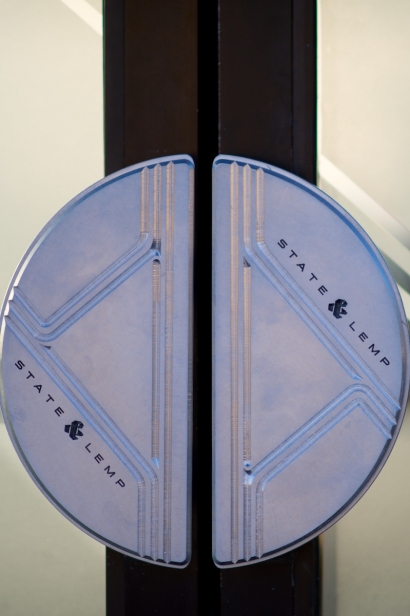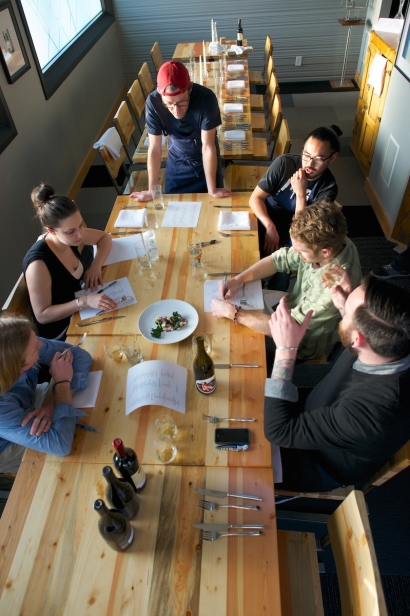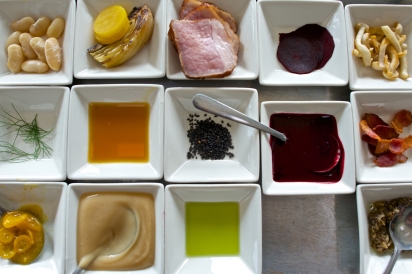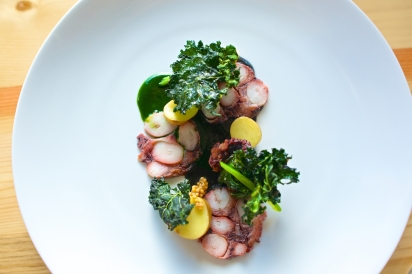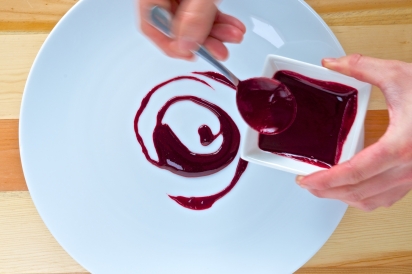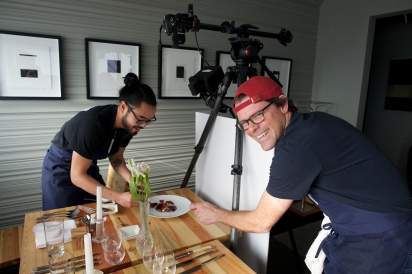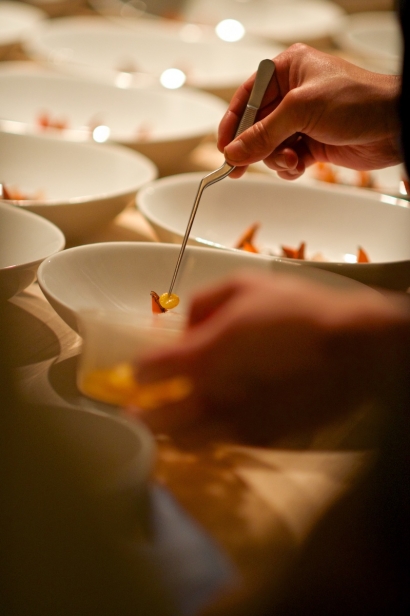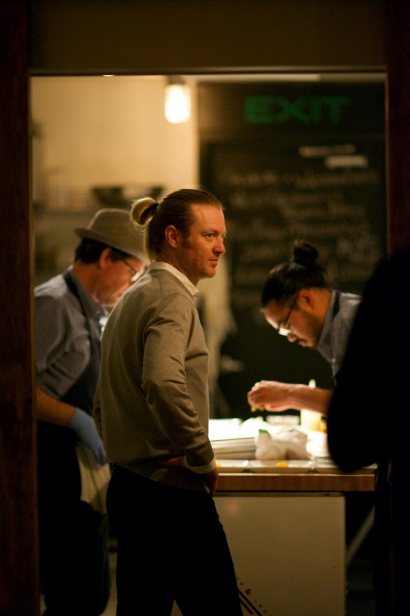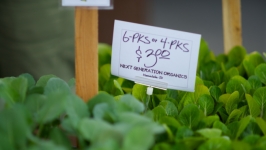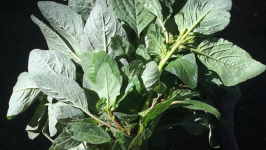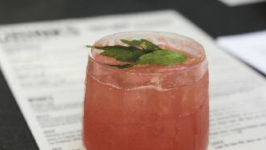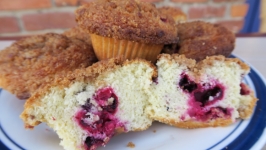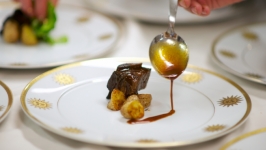Pushing the Culinary Envelope: State & Lemp
The young staff of State & Lemp has crowded around the honey-colored communal table that dominates their long, narrow dining room, forks in hand. Afternoon light streams in through a bank of frosted windows, glancing off glassware and cutlery, making the room sparkle. But today these six staff members are focused on a single white plate set in the center of that table. Today is the day they are reviewing their new prix fixe menu and on that plate sits three delicate slices of octopus, a small tentacle curling artfully around a crisp kale chip, all perched over a pool of squid-ink-spiked black garlic sauce.
“Certainly it is something different for Boise,” says co-owner/manager and former professional bike racer Remi McManus. “But it’s a fine dining concept that’s widely accepted in other cities like Chicago, New York, Portland, Seattle.”
Every three weeks State & Lemp rolls out a new five-course meal with an amuse-bouche, a take-home baked good for morning coffee and, as McManus puts it, “an occasional extra course just because we love to wow.” Although they accommodate dietary needs when arranged in advance, when you go there, you’ll basically be putting your taste buds in the chefs’ hands.
“We want to challenge you a little bit,” adds fellow co-owner/chef and fedora-topped Jay Henry, “But then we’ll try to bring you back down to things that you are more comfortable with.” To that end, the new menu also offers braised pork loin and lemony olive oil cake.
McManus and Henry are well aware of the delicate balance they must strike between the challenging and comfortable in this notoriously conservative food town. The two have decades of restaurant experience between them and were employed at Mortimer’s and Franco Latino, re-spectively, when those and nearly every other well-regarded, high-end Boise area restaurant shut down in 2008. “The economy collapsed,” remembers Henry, “and it seemed like the food scene was really drying up.”
“So, we went off and did other things,” McManus says. “Jay opened up another restaurant in California; I started a cycling team and for a couple of years we didn’t do much. Then Jay came back from California and my cycling team went away, so we revisited the idea of doing a pop-up style restaurant.”
“We started Off the Grid Dining because we all lost our jobs,” Henry says with a laugh of the pop-up dinners they began organizing at private homes.
“Saturday mornings, we’d roll into the guests’ house,” adds McManus, “promptly kick them out and Jay would start preparing his meal in the kitchen and I would start to rearrange their interiors. We would often find ourselves moving out every bit of furniture that they had into the yard, covering it with tarps and bringing in our own furniture and creating a restaurant, essentially, in their house.”
What started as a way to stay connected to the food business between real jobs turned into something more. “We’d host one,” says Henry, “and during that dinner we would book another one for two weeks later. We would do as many as we wanted to do. So, we sat down and said this is an idea that works, because when we do it, we can’t do enough of them.”
McManus and Henry took it as a sign that Boise was coming out of the restaurant doldrums. On the very day they decided to talk about a next step, an odd little triangular building at State and Lemp streets, just west of downtown Boise, became available. McManus, who grew up in that mixed-use neighborhood, remembers, “It started out in 1985 as a Taco Johns.” Then, he says, there was Roque’s Mexican Food, a Hot Dog Depot, a cheese steak place, Amigos Restaurant and finally the Pacific Rim Wine Shop.
The building felt quirky, but right—and happened to be within bicycling distance of both of their homes. So the two signed a lease and began construction on July 1st, 2013—and this is where McManus and Henry’s idealistic-sounding notion of a high-end, prix-fixe restaurant in an odd little place on outer State Street with a communal table serving octopus in squid ink starts to make practical sense.
“We designed and built everything in here,” McManus says like a proud father. “Every single piece in here we touched or someone close to us touched. A lot of the items are recycled and repurposed. The doors that we have leading into the kitchen have been in my backyard for 10 years . . . I used bike parts to do the chandelier.” During construction, McManus and Henry frequently posted Facebook photos of themselves and friends grinning maniacally through clouds of saw dust and splattered paint.
“We were self financed, which in this industry is impossible for most people,” says Henry, who had successfully opened numerous restaurants in Colorado before moving to Boise. “The rent is a third of what it is five blocks from here.” The two business partners opened their recycled doors in mid October, $40,000 under budget and therefore confident they had the room to poke Boise’s culinary envelope just a bit.
After tasting and discussing the new menu’s octopus dish and the wines that would best pair with it, the staff moves on to the next item: Tea-aged pheasant with duck liver mousse, celery root purée, celery salad and crispy pheasant skin. Everyone studies the presentation, takes a bite and makes suggestions; maybe a little more salt here or a tad less truffle oil there. They sip wine possibilities. They take notes. Jay Henry or chef de cuisine Kris Komori occasional race back into the kitchen to redo a flawed component, then quickly return for another try. Henry says their fixed menu allows them to tinker, refine and focus a dish in ways that are nearly impossible for a restaurant with a sprawling á la carte menu.
No matter one’s opinion of adventurous, high-end dining, it’s difficult not to admire the attention to detail, studied logic and earnest work on display during these menu meetings. They’re also having fun; it’s as if this team has built themselves a well-appointed playground where they can indulge a few personal culinary fantasies.
“It’s long hours and long days,” says chef Komori, his black hair pulled into a bun on the back of his head, “but it’s worth it when you’re with the right people.”
Komori, who got his start at the New England Culinary Institute, says menu ideas sometimes come to him in a dream, but more often through hard work. “We start with one building block and we kind of build from there. Typically we’ll plate something and then we’ll knock it down, take two of the components off it and start over. So it’s a long process . . . it takes multiple trials and errors.”
Having worked at several ambitious restaurants in Portland, Ore., like Biwa (now closed) and Sauvage (and also having helped paint and put in carpet before State & Lemp’s opening), Komori now has a far-reaching network of friends he shares ideas with. “They’re young chefs out there kind of leaning to more modern techniques,” Komori says. “We talk often and we’ll bounce ideas back and forth, like flavor pairing, and it’s been very helpful.”
Jay Henry says seasonality also plays a big part in the menu; thus, the beets, onions, potatoes and kale that shared wintertime plates with more rarified ingredients. Prior to opening, Henry would often prowl the Boise Farmers' Market, looking for ideas. “The farmers market is one of the things that kind of inspired this idea,” he says. “It’s big, it’s vibrant, it’s fresh . . . it’s a part of the city that people really associate themselves with. And that’s what inspired me to think that people out there are interested in good ingredients and they’re interested in people preparing them in a way that is going to be a little more exciting than what they’re seeing every day.”
“I want to entertain people,” adds McManus with an expression that often shifts from managerial to mischievous in a flash. His may be a modern, high-end restaurant, but without the stuffiness of the whitelinened past. “I want people to have a good time,” he says through a grin. “It’s just a huge bonus for me that the food we produce is fantastic and that the local farmers and ranchers that produce those foods are fantastic.”
Still, McManus and Henry realize they’ve positioned State & Lemp at the teetering top end of Boise’s restaurant food chain. When asked if he’s worried that it could suffer the same fate as past ambitious Boise restaurants, McManus frowns for a second, brushing a strand of long, blond hair behind an ear. “I’ve failed at a lot things in my life and I’ve succeeded at a number of things. “But,” he says, as a playful smile reemerges, “we didn’t really consider failure at all because we’re doing what we wanted to do.”
State & Lemp | @stateandlemp
Remi McManus | @remistar
Kris Komori | @kriskomori
New England Culinary Institute | @neciedu
Boise Farmers' Market | @boisefarmersmarket


